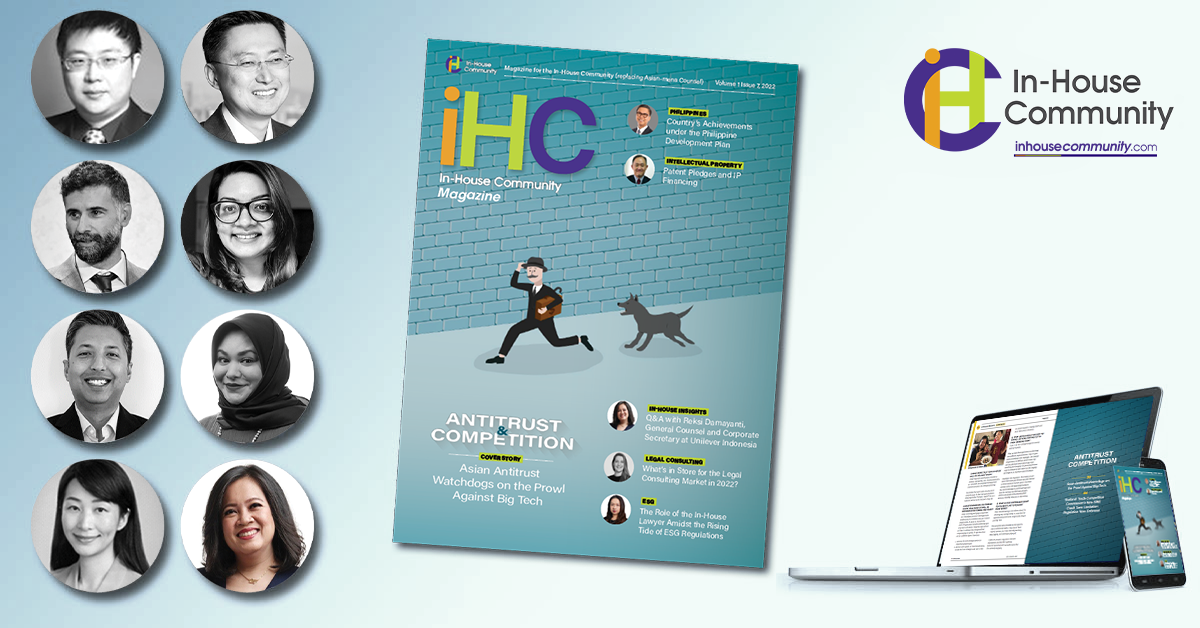
SME vendors and service providers in Thailand may have little bargaining power when facing and negotiating with larger buyers, and often must accept long credit terms requested by these buyers. In fact, SME operators in Thailand, when dealing with large and powerful buyers, often face credit terms that are on average much longer than those of SME operators in neighboring countries in the region.
This, unfortunately, causes financial difficulties for Thai SME operators due to the impact on cashflow. This also has a negative impact on the whole supply chain and on employees. In contrast to credit terms with larger buyers, credit terms between SME buyers and SME vendors or service providers are ordinarily short, much like in other countries. Hence, the root cause of these extraordinarily long credit terms is the imbalance of negotiating power.
The Thai Trade Competition Commission, operating under the Trade Competition Act of 2017, issued a regulation to combat this imbalance so as to assist SME operators during the period of economic hardship that has been exacerbated by the COVID-19 pandemic. The SME credit term limitation regulation (the “Regulation”) limits the credit term that a buyer may request from an SME vendor or service provider to 45 days and further shortens credit terms to 30 days for businesses dealing in the agricultural sector, including agricultural products or processed agricultural products with non-complex production procedures. The Regulation was enacted on 18 June 2021 and became effective 180 days thereafter, on 16 December 2021. It is important to be aware that since the regulation already provided a 180-day grace period, it is unlikely that the authority will provide leniency for non-compliance.
Applicability
The Regulation applies to all commercial relationships with payment terms, including simple sales of products or services, product consignments, and other types of sales and service relationships. The Regulation will also apply to a situation whereby the buyer is also an SME. Conclusively, the only situation that this Regulation will not apply to is when the vendor or service provider is not legally categorized as an SME operator.
Note that the Regulation does not specifically exempt any existing relationships where an agreement is ongoing. A purchase order is arguably exempt if it was issued and accepted before the Regulation was enacted. However, the Regulation’s credit term limits will apply to purchase orders that are issued after the regulation was enacted (although issued under an existing long-term sales, consignment, or supply agreement). This is because the special conditions prescribed by this Regulation have presumptively been made known to the participants to the contract.
SME Status
By law, a particular vendor or service provider is an SME operator when it falls under one of the following categories:
- For manufacturing: having employees not exceeding 200 or having annual sales not exceeding 500 million THB.
- For services, wholesale, or retail: having employees not exceeding 100 or having annual sales not exceeding 300 million THB.
The regulation employs a very rigid and technical classification whereby the word “or” will play a crucial role as a vendor or service provider must meet one, not both, of the conditions. This means that, for example, a low-headcount, high-productivity business such as an IT service company, a commodity brokerage, or a trading house with below-100 employees and a 10-figure income would still be classified as an SME operator. However, outsourced personnel will not count towards the employee headcount.
Furthermore, if a vendor deals with both manufacturing and services, wholesale or retail, the vendor must be compared against both sets of categories to determine whether that vendor is an SME under the Regulation.
It is the responsibility of a vendor or service provider to actively assert and prove that it is an SME operator by submitting reasonable evidence to the buyer. Based on statements from the authority, evidence that can be given by a vendor or service provider includes unequivocal evidence, such as government-issued certifications, audited statements, lists of employees, etc. Evidence may also include less official or verified documentation, such as a signed self-declaration. The authority has indicated that they will be lenient towards SME operators when proving their status. If the SME status of a vendor or service provider is later proven to be false, the buyer may bring a claim against that vendor or service provider.
Counting Methodology
Credit terms commence once delivery of the products or services (or sale of an agreed consignment) has been completed, and all documents have been submitted. The authority has stated that parties should rely on the same list of documents that has been historically required. This means that buyers may not introduce new required documents for the purpose of delaying the start of a credit term. In addition, the authority has stated that they will likely allow the parties to have a reasonable period to verify the delivered products before the credit term is triggered. Note that the product inspection period should be as historically practiced, meaning the buyers cannot request a longer than necessary product inspection period simply to postpone the start of the credit term.
The resulting impact of this Regulation is the effective removal, or at least partial overriding, of the existing and historical monthly deadline for invoice submissions and monthly payment dates that are both prevalent among business operators in Thailand. In effect, the only factor that will matter is the satisfaction of the two regulation-prescribed conditions: 1) delivery of products or completion of services; and 2) submission of necessary documents. If the two conditions are met, the credit term will commence regardless of whether the buyer has a monthly document submission deadline or monthly payment date. SME vendors and service providers can submit documents whenever they want and the credit term will commence. Payments must be made before the deadline prescribed by law, meaning that in some cases the monthly payment date can still work for some invoices.
Deviation
By default, buyers must abide by the maximum length of a credit term prescribed by the Regulation. Any attempt to deviate from a credit term must be supported with a good rationale as there is no clear definition of the concept of reasonableness under the Regulation. Note that the authority has stated that deviation of a credit term must be approved and will generally be a rare exemption, not a general occurrence. Importantly, this Regulation aims to override the imbalance in the bargaining power between SME operators and larger buyers. As such, a bilateral declaration by parties that an SME vendor or service provider is satisfied with a current credit term that is longer than that prescribed by law will likely not be accepted as the Regulation was enacted to eliminate this type of bilateral arrangement.
By default, buyers must abide by the maximum length of a credit term prescribed by the Regulation.
Penalties
As the Regulation is issued under Section 57 of the Trade Competition Act of 2017, penalties are administrative fines of up to 10% of the sales figure in the year(s) during which the breach occurred. This can be a very substantial amount, especially for large companies, but in practice the imposed fines will be proportionate to the fault committed and the business unit involved.
Conclusion
Representatives of SME vendors or service providers may claim a limit on credit terms from buyers. It is also important to be aware that the Regulation does not include any provision for an exemption to the credit term limits in a case where an SME actively proclaims its status and unilaterally relinquishes its rights under the Regulation. In such a case a buyer may still be liable for compliance with the Regulation.
Buyers are recommended to prepare internal back-office systems to ensure compliance with the Regulation. Failure to do so may lead to penalties under Section 57 of the Trade Competition Act, which may result in hefty administrative fines as outlined above, as well as potential reputational damage.
Disclaimer: All views are personal and do not reflect that of the organization. The views shared are not intended for any legal advice and are for general information and education purposes only.
By Pranat Laohapairoj, Athiwuth Phanprechakij, Supakan Nimmanterdwong

Pranat Laohapairoj Pranat is a partner at Chandler MHM and has been with the firm since 2012. He has worked with Thai and international clients on merger and acquisitions, antitrust, corporate, anti-corruption, compliance and data protection. |

Athiwuth Phanprechakij Athiwuth is an Associate at Chandler MHM and has been with the firm since 2015. He specialises in corporate law, labour law, business licences, securities law, general business agreements. |

Supakan Nimmanterdwong Supakan is an Associate at Chandler MHM. She focuses on M&A, competition/antitrust, and data protection laws. Her practice also covers cross-border investments in a wide range of sectors. |

Chandler MHM Limited
17th and 36th Floors, Sathorn Square Office Tower, 98 North Sathorn Road
Silom, Bangrak, Bangkok 10500 Thailand
* This article was first published in the Feb 2022 issue of the IHC Magazine. You can read/download the magazine here.


